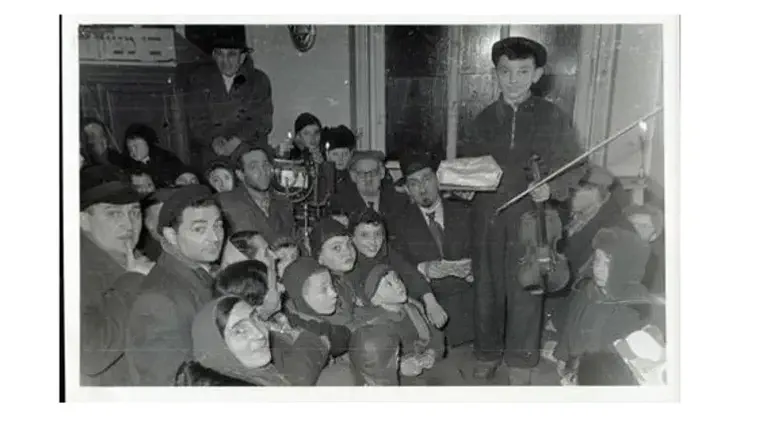
Eduard Kuznetsov, Prisoner of Zion, journalist, writer and man of struggle, passed away at the age of 85. Kuznetsov was a symbol of the struggle to liberate Soviet Jews and enable their immigration to Israel. His funeral took place on Monday at the new Hadera cemetery.
Kuznetsov was born on January 29, 1939 in Moscow. During the 1960s, he was active in a Jewish underground that encouraged immigration to Israel, during the time of the Iron Curtain, when Jews were prevented from leaving the USSR.
In 1970, he took part in Operation "Wedding" – when a daring group of refuseniks (Jews denied immigration to Israel) planned to hijack an empty plane in Leningrad (today's St. Petersburg) and land it in Sweden. Their goal was to arouse world public opinion about the situation of Soviet Jewry.
The operation failed, and all the participants, including Kuznetsov, were arrested. Kuznetsov was sentenced to death for "treason against the homeland," but due to immense international pressure, his sentence was reduced to 15 years in prison. He spent nine years in prisons and labor camps under harsh conditions, until he was released in 1979, as part of a prisoner exchange deal between the Soviet Union and the US. Upon his release, he immigrated to Israel.
In Israel, Kuznetsov began working in literature and journalism. He wrote and edited publications in Russian, including the Vesti newspaper, and published several books, including "I Am a Citizen of Israel! : A Diary from Prison" – a book he wrote during his prison sentence, and was smuggled to the West. The book describes his difficult experiences as a Prisoner of Zion and is a fascinating historical testimony to that period.
Kuznetsov was also involved in human rights activism and strived to strengthen connections between the Soviet communities in Israel, and the wider Israeli society. He promoted civil rights and the values of liberty and justice.
Kuznetsov's daughter, Anat, eulogized her father in a Facebook post: "There is so much to tell about my father; his books and movies, entire manuscripts. I remember when in 2018 my father was awarded a prize for his contribution to Russian journalism in Israel. He didn't want to accept the prize. He said he didn’t deserve it. I said, 'Of course you deserve it!' In the end, he went on stage and with his subtle self-confidence said, 'I deserve it!'
She added: "Dad, how much I love you. We've always said that only we understand each other. Even now, in his last days, he couldn't speak, but his eyes said it all. I understood exactly what he wanted. When he wanted to drink, when he wanted me to explain to him what was happening when he wanted me to stay a little longer. I realized that this was the end. I kissed him and said I love him. But then I started crying and he was a little scared. He died without pain, without drama. He was calm."
